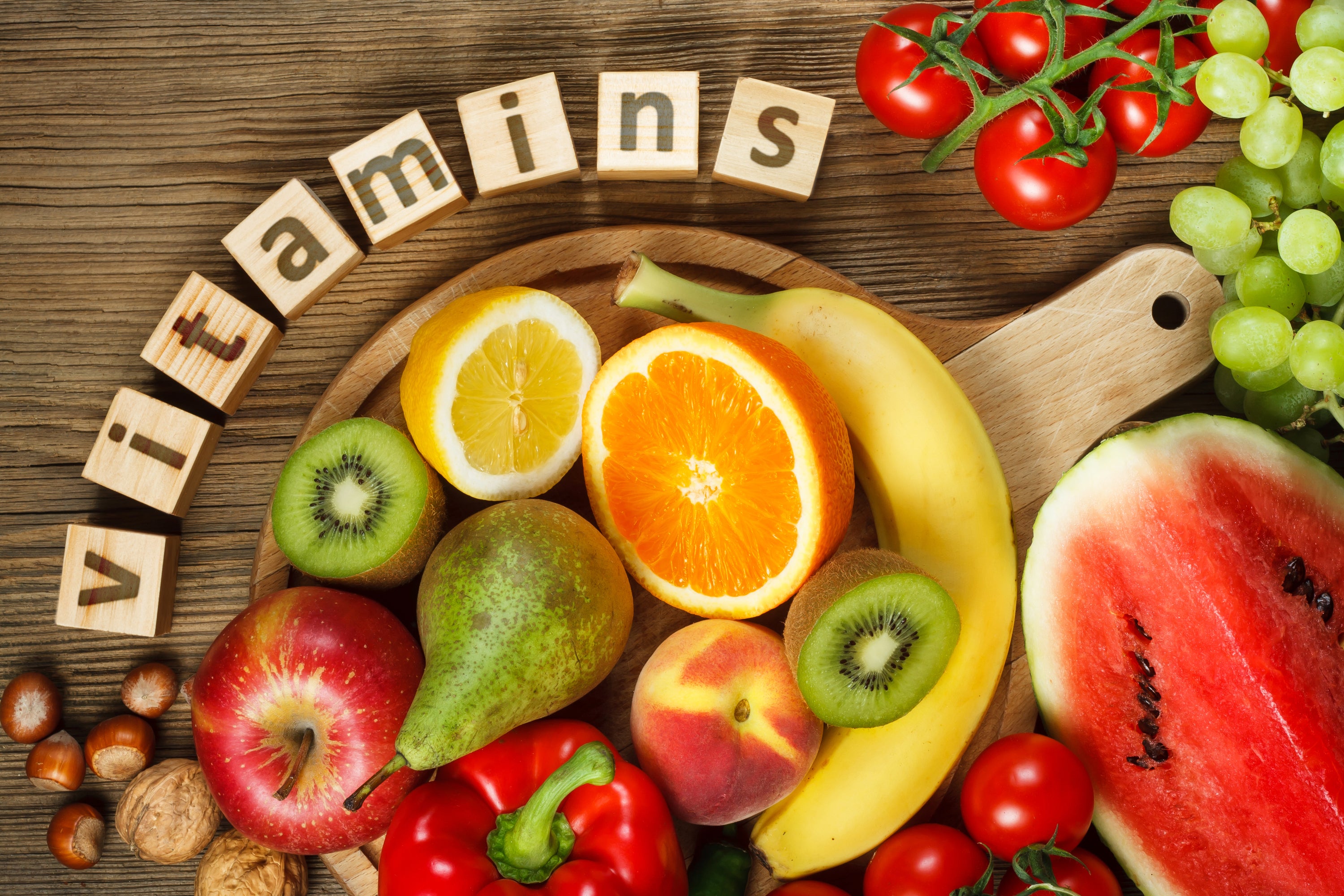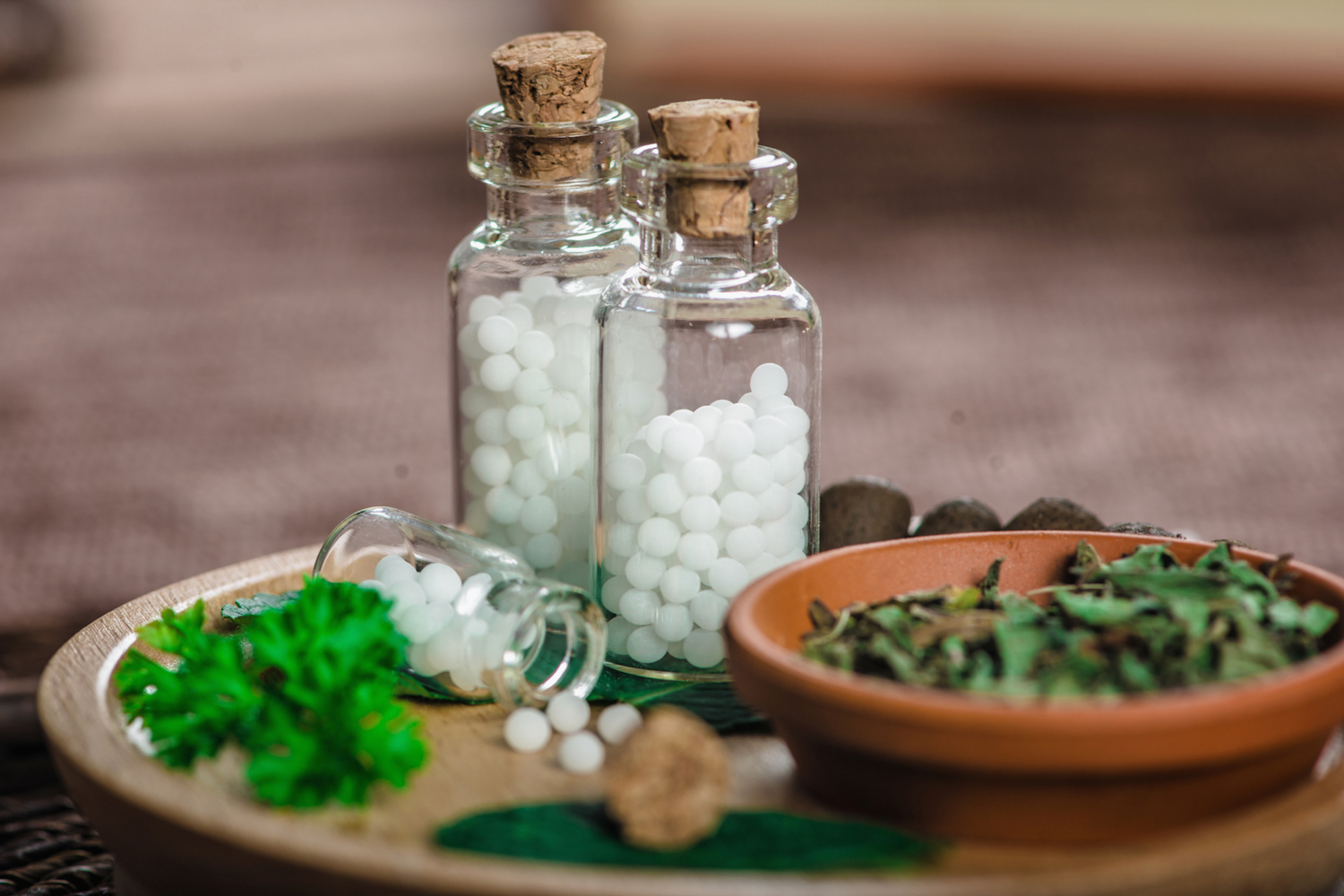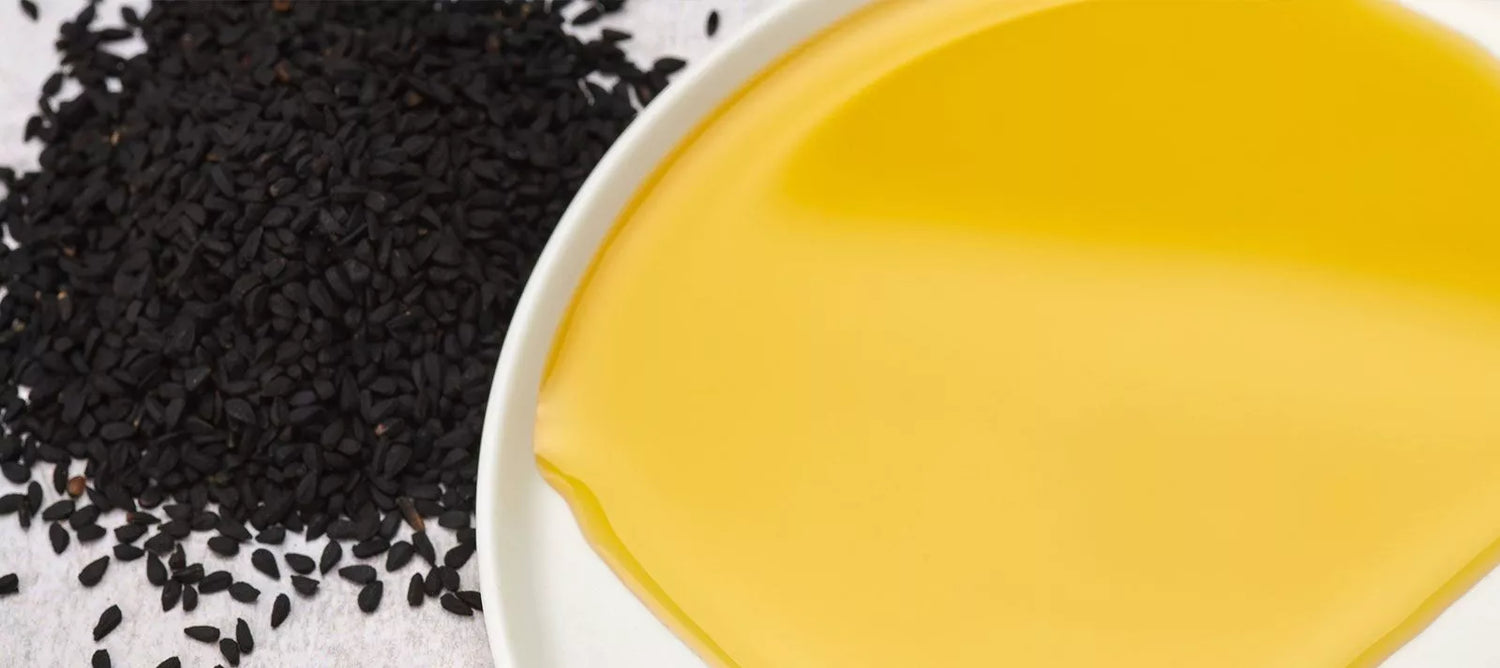Vitamins and dietary supplements have become an essential for maintaining healthy bodily functions due to the declining nutrient density in our soil - even with a balanced diet and good nutrition, our body can struggle to meet the levels it needs without supplementing. However, not all vitamins and supplement ingredients are created equal. In the UK, the supplement industry is not regulated with high enough standards, so it's essential you get up to date with what is actually going to help and what wont. Synthetic vitamins are made in a laboratory and most do not provide the same health benefits as whole food vitamins. Whole food vitamins come from natural sources such as fruits, vegetables, and grains. They contain additional nutrients that work together for optimal absorption and health benefits.
Synthetics may also have a large amount of added fillers, preservatives, and chemicals that can be harmful to the body. It is crucial to read labels carefully and choose high-quality supplements from reputable sources with minimal additives or fillers.
Understanding Vitamins and Supplements
Knowing the difference between synthetic or low quality vitamins and good quality, clean ones can be difficult - but once you know what to look out for, it will become second nature. Synthetic vitamins and supplements are made in a laboratory, whereas whole food vitamins and supplements come from natural sources. Whole food vitamins contain additional nutrients and compounds that are not present in synthetic vitamins. While synthetic vitamins may seem like an attractive option due to their lower cost, they are often not as effective or beneficial as whole food vitamins.
What are Whole Food Vitamins?
Whole food vitamins are derived from natural sources such as fruits and vegetables, and contain additional nutrients like fiber and antioxidants. These nutrients work together to provide better absorption and utilization by the body
While supplements should not replace a healthy diet, they can be used to fill any nutrient gaps in your diet. Whole food vitamins are derived from whole foods and contain not only the vitamin but also other important nutrients that can help support overall health. When looking for a vitamin supplement, it's important to choose one that is made from whole food, good quality sources to ensure maximum nutrient absorption and effectiveness.
What are Synthetic Vitamins?
Synthetic vitamins are made in a lab, not from food. They're called "synthetic" because they don't occur naturally but are are chemically identical to the vitamins found in natural foods. Synthetic vitamins are used because they're cheaper than whole food-based vitamins and can be mass produced for large amounts of people without the need for natural ingredients (like plants).
Although sometimes even in the best of vitamins, there is a small element of synthetics present, the aim is to avoid vitamins which are predominantly made from them. Synthetics are much cheaper and last a lot longer than whole food vitamins but because this is not what your body is looking for, it makes them: Less bioavailable, unrecognisable, harder on the kidneys and stored in the liver eventually becoming toxic, unlike whole-foods where excess is eliminated.
Benefits of Whole Food Vitamins
Whole food vitamins offer a multitude of benefits that synthetic vitamins cannot match. They are derived from natural sources and contain a variety of nutrients beyond just the vitamin itself, such as enzymes, antioxidants, and phytonutrients. In addition to these essential nutrients, they also provide other beneficial components like fiber and enzymes that are not present in synthetic vitamins. The body is better equipped to absorb them because they are in their natural form. Whole food vitamins have been linked to improved immune function, overall health, and have shown effectiveness in preventing chronic diseases. Consuming whole food vitamins can also help ensure you are getting a diverse range of nutrients. Therefore, it's important to choose whole food vitamins over synthetic supplements to maintain good health and promote optimal bodily functions. Whole food based vitamins are made from whole foods that have been ground up and pressed into a powder. The process of making them this way ensures that you get all the nutrients you need, without any or minimal fillers or additives.
Risks and Side Effects of Synthetic Vitamins
Synthetic vitamins are often made from isolated or synthetic chemicals, which can lead to potential health risks and side effects. These vitamins cannot be absorbed well by the body and may even cause toxicity if taken in high doses.
Mega-dosing on synthetic vitamins can also have negative health consequences.
Toxicity in the Body
While synthetic vitamins may seem like an easy and convenient way to get the recommended daily amount of essential nutrients, they can come with potential risks and side effects. One major issue is that synthetic vitamins are not always easily absorbed by the body, meaning that much of the supplement may go to waste. Additionally, excessive intake of synthetic vitamins can lead to toxicity in the body, which can cause a range of negative side effects. synthetic vitamins may have higher levels of certain nutrients than what the body needs, leading to negative side effects if taken in excess.
Reduced Bioavailability
One major concern is reduced bioavailability - synthetic vitamins are made in a lab and may not be as easily absorbed by the body as whole food vitamins, which come from natural sources such as fruits and vegetables. They are not absorbed by your body as well as whole food-based ones, which means that they're less effective at providing nutrients you need and may even cause side effects like nausea or stomach pain because they aren't being digested properly.
Not being able to absorb these vitamins as effectively makes them unrecognisable. This can lead to the body targeting these 'vitamins' for removal as it sees it as a foreign body. If the body cannot remove them, it ends up as a buildup of toxins in the body. For this reason, many health experts and dietitian's recommend choosing whole food vitamins instead of synthetic options whenever possible. Some examples of Synthetic Vitamins are: D2 (synthetic vitamin D), Vitamin B12 in the form of Cyanocobalamin, Vitamin E beginning with DL.
Stress on Liver
Artificially made vitamins that are contain high amounts of fillers, binders, and other additives can put stress on the liver, as the body tries to process a high concentration of synthetic nutrients.
Increased Risk of Chronic Diseases
When comparing synthetic vitamins to whole food vitamins, it's important to consider the potential risks and side effects associated with synthetic options. Synthetic vitamins lack the complex molecular structure of whole food vitamins, which can lead to a higher risk of toxicity and side effects. They may increase the risk of chronic diseases due to their lack of natural co-factors and synergistic nutrients as it puts stress on vital organs, reducing immune function and creating a vicious cycle. The use of dietary supplements is for most people a way to become healthier, but unfortunately because of lack of information the same people end up making themselves sicker as a result of choosing vitamins that did not have their best interest.
Clinical Evidence
In 1993 The Alpha-Tocopherol and Beta-Carotene Cancer Prevention study looked at 23,133 male smokers. They gave one group of males, alpha tocopherol (Vitamin E) only, group 2, beta-carotene only, group 3, both alpha-tocopherol and beta-carotene, group 4 a placebo.
The Result: 18% more lung cancer and 8% more deaths among those who took synthetic beta-carotene.
Another study testing synthetic beta carotene, with a sample size of 18,314 adults had 17% more deaths, 46% more lung cancer and 26% more cardiovascular disease among those taking synthetic beta carotene compared to those taking placebo.
In 1995, a study looking at Teratogenicity of High Vitamin A intake looked at 22,748 pregnant women. Group one consumed 10,000 IU synthetic vitamin A. Group 2 consumed 20,000 IU synthetic Vitamin A and Group 3 consumed Vitamin A from whole foods.
The Result: Women who took 10,000 IU daily from synthetic supplements had a 240% greater incidence of having a child with birth defects. Women who took 20,000 IU of synthetic Vitamin A had a 400% increase in having a child with birth defects.
No amount of Vitamin A from food produced any ill effects; this included the consumption of 3oz of liver which can contain up to 30,000 IU of Vitamin A.
A sample size of 35,533 men showed men who took synthetic vitamin E, ended up developing 13% more prostate cancer for synthetic Vitamin E compared to placebo and other vitamins.
A sample size of 3,749 men and women showed those who took synthetic folic acid increased the risk of these health conditions: heart attack, stroke and cancer increased by 20% to 30% compared to those who took placebo and other vitamins.
Understanding Labels
When it comes to choosing vitamins, it's important to understand the labels.
To ensure you're getting the best quality, look for labels that indicate "whole food" or "food-based" sources of vitamins. Be wary of labels that list fillers, binders, additives right at the top of the list, or ingredients such as: D2, Cyanocobalamin, Retinal Palmate, Retinal Acetate, Thiamine Mononitrate, Thiamine hydrochloride, Nicotinic acid, pyridoxine hydrochloride, fumaric acid, folic acid (without any reference to folate) are some examples of synthetic vitamins. Additionally, avoid supplements with artificial colours, sweeteners and flavours.
Some vitamins require fillers and binders such as tablets, unlike capsules, as they need to be able to use something to hold it all together - in this case pick tablets which have those ingredients lower down the list, rather than right at the top.
Why are Whole Food Vitamins More Expensive?
Dr Stacey Robins has the perfect answer! "Buying cheap vitamins for the most part is a colossal waste of money. Inexpensive vitamins contain the cheapest forms of each vitamin and a plethora of additives, preservatives and artificial sweeteners. It is ironic that most people who take vitamins do so because they want to be healthier. And yet, these vitamins are the equivalent of mass-produced unhealthy processed foods, filled with synthetic ingredients and preservatives."
Just the way junk food is mass produced with poor ingredients, making it cheap and accessible, is the way poor quality synthetic vitamins are available to the masses, made in huge bulks with poor quality ingredients and sold for low prices. Whole food and good quality vitamins on the other hand, are actual food condensed into powder, they are treated at very low temperatures in order to preserve their benefits. Good quality fruit and vegetable shopping is not cheap and neither can vitamins which include high amounts of the those foods afford to be as cheap as synthetics.
Is it okay if I take a multivitamin that has a mixture of both Whole food and Synthetic Vitamins?
While some in the health and wellness community argue that taking a multivitamin made with synthetic vitamins is better than not taking one at all, their safety and effectiveness in the long term are concerning. Synthetic vitamins lack the necessary requirements for optimal activity in the body, which means that the body has to draw on its own reserves to get the most out of them. This can result in depletion of these reserves over time. Additionally, synthetic vitamins are often produced using industrial petrochemicals, which results in an increase of toxic load in the body. So is taking a multivitamin with synthetics worth it? We would say not. Giving your body what it needs at the same time as putting it under extreme stress just to save a few pounds or just because you'd rather take something over nothing, is not a good trade-off. It's always best to prioritize whole foods and high-quality supplements made from them. isn't the kindest thing to do to yourself.
Check out some of our favourite multivitamins here:
Conclusion
Trying to live a healthier lifestyle can seem overwhelming and confusing. With so much information out there pointing you into different directions, it can be hard to work out whats right. When it comes to vitamins, the best thing to do is stick to ones made from the real thing, it just makes the most sense! A whole food vitamin can help you reach your goals much faster. No matter what the vitamin, Vitamin K, Vitamin C, or your minerals like magnesium, iron, copper and more, if you stick to the most real, absorbable form, you will aways be on the safe side!
And whats even better? If you really cant get your head around it, we've done all the hard work for you at EntirelyPure! We will never sell you anything dangerous and are constantly learning and improving how we can support you, whether it be immune support or menopause - we will always give you the best that there is on the market. You can always trust us to put your health first and we are always here to help.
References you should check out to learn more:
https://www.tandfonline.com/doi/abs/10.1300/J064v26n01_10
http://thejaps.org.pk/docs/V-30-04/23.pdf
https://pubmed.ncbi.nlm.nih.gov/11090291/
https://www.ncbi.nlm.nih.gov/pmc/articles/PMC8418216/
https://philmaffetone.com/serious-dangers-of-synthetic-unnatural-vitamins/





